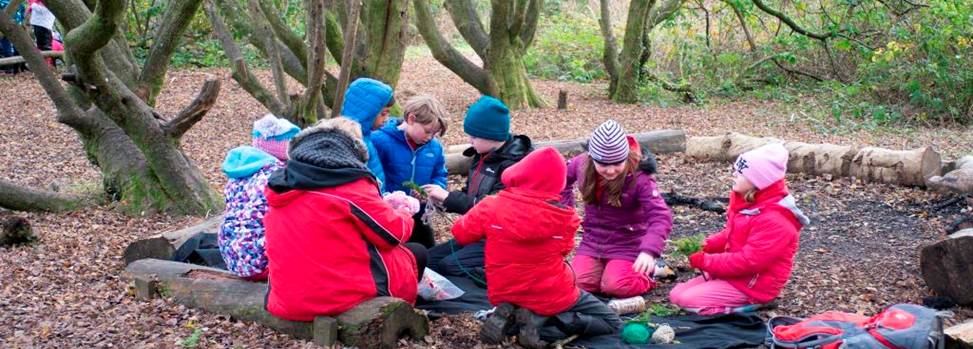These articles are now archived and will no longer be updated.

Outdoor learning has had a positive impact on both children and staff at a Swansea primary school, boosting their wellbeing and pupil attitudes to learning.
This was demonstrated following the school's engagement with HAPPEN, a primary school network led by a team of researchers at Swansea University.
The school inspection body Estyn has just reported on the school – Crwys Primary – awarding an excellent judgement for wellbeing and attitudes to learning and cited the school’s commitment to outdoor learning an example for others across Wales to follow.
HAPPEN is a network of primary schools led by Swansea University experts in public health, wellbeing and physical fitness aimed at improving the health and wellbeing of children in Wales. Research shows that healthier and happier children do better in school, and that education is an important determinant of future health.
The HAPPEN team have been working with a number of schools across Wales. Crwys primary school in Three Crosses, Swansea was one of the schools involved in their research on outdoor learning. Crwys is a small school of around 145 pupils. The school does not have any green space of its own, but makes use of some nearby woodland.
All pupils at Crwys spend a minimum of half a day in the woodland enjoying the great outdoors every week throughout the year. They take the curriculum outside, enjoying lessons such as science, art and maths (pictured).
The HAPPEN team carried out interviews and focus groups with pupils and staff and found that:
- Pupils’ wellbeing, their enjoyment of school and their attitudes to learning, have all improved
- There was also a positive impact on staff wellbeing, with teachers reporting increased job satisfaction: one said that it’s “just what I came into teaching for”.
The findings are timely and globally relevant as opportunities for children to access the natural environment are diminishing. Children are spending less time outside due to concerns over safety, traffic, crime, and parental worries. Modern environments have reduced amounts of open green spaces too, while technology has increased children’s sedentary time.
The Estyn report on Crwys Primary said:
“Outdoor learning has had a positive impact on pupil wellbeing and their attitudes to learning. The school has seen a rise in attendance and academic standards have also improved.
“School staff are proud advocates of the benefits of outdoor learning on pupils’ wellbeing. They have worked closely with Swansea University on a project which has proved that outdoor learning improves pupils’ health and wellbeing”
Dr Emily Marchant from the HAPPEN team at Swansea University who led the outdoor learning research said:
“Our findings add to the evidence that just an hour or two of outdoor learning every week engages children, improves their well-being and increases teachers’ job satisfaction.
Education is not just about lessons within the four walls of a classroom. The outdoor environment encourages skills such as problem solving and negotiating risk which are important for child development.
If we want our children to have opportunities where “you don’t even feel like you’re actually learning, you just feel like you are on an adventure” and teachers to “be those people we are, not robots that it felt like we should be”, we need to change the way we think about school lessons.
Crwys Primary is showing the way in Wales, as Estyn has underlined. We would welcome other schools in Wales to our free HAPPEN network, so they too can make positive changes in their school to make their pupils healthier and happier.
More about team's work featured in The Conversation
